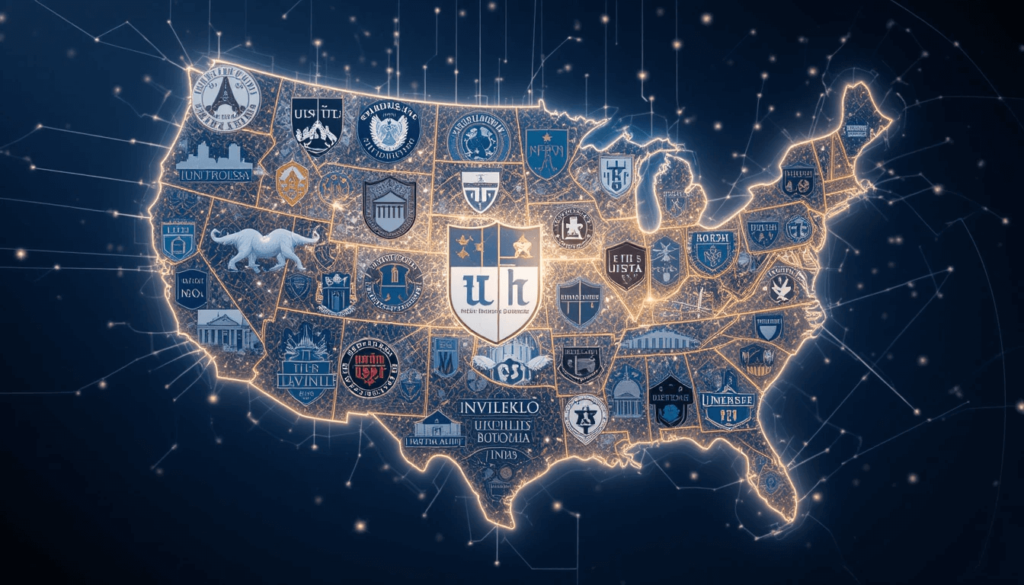best online universities—yep, that’s been my obsession lately. I’m typing this from my creaky couch in my Chicago apartment, surrounded by empty seltzer cans and a pizza box I swear I’ll recycle tomorrow. My cat’s glaring at me, probably judging my life choices, while I’m Googling “top online colleges” at 1 a.m. with chip crumbs on my shirt. I’m 29, stuck in a barista job, and dreaming of a career that doesn’t involve cleaning espresso machines. Here’s my messy, honest dive into finding the best online universities in the U.S. for 2025, with some dumb mistakes and real talk thrown in.
Why I’m Even Bothering with Online Universities
Look, I’m not cut out for campus life. My apartment smells like burnt toast half the time, and moving to a dorm? Hard pass. I need flexibility to keep my job and afford my cat’s bougie kibble. That’s where best online universities come in—they’re like Netflix for degrees, but with actual homework. According to some stats I found on U.S. News, there’s like 1,800 online programs out there now, covering everything from nursing to computer science. I thought online learning was gonna be a breeze, like watching YouTube, but lol, I was so wrong.

My Fave Best Online Universities for 2025
Alright, let’s cut to the chase. I’ve spent way too many late nights researching top online colleges, and here’s my shortlist. These are legit, accredited schools, so you won’t get a diploma that looks like it came from a cereal box. I’m no expert, but these vibe with my chaotic energy.
Pro Tip: No application fee, so just apply and see if it’s your jam.
University of Florida Online
Why It’s Dope: Tuition’s crazy low—$129 per credit if you’re in Florida, and not awful even if you’re not. They’ve got programs like IT and business that I’m drooling over.
My Dumb Moment: I joined a Zoom info session with my mic unmuted, loudly yelling at my cat to stop chewing my charger. Everyone heard. Kill me.
Pro Tip: They’ve got scholarships you don’t even know about—dig into their financial aid page.
Arizona State University Online
Why It’s Dope: ASU’s got 300+ programs and makes you feel like you’re not just a number. Their virtual labs, like for biology, are straight-up sci-fi cool.
My Screw-Up: I forgot to submit a discussion post because I was arguing with my roommate about dishes. Got a zero. Don’t be me.
Pro Tip: They give credit for work experience, so you might skip some classes.
Southern New Hampshire University (SNHU)
Why It’s Dope: Tuition’s $330 per credit, frozen since like 2012. They’ve got 158,000 online students, so they know their stuff. Perfect for night owls like me.
My Cringe Moment: I emailed a professor with “Hey, prof!” like an idiot and then realized it was way too casual. They were cool about it, tho.

Stuff I Learned (and Totally Screwed Up) with Online Learning
Real talk: best online universities are awesome, but they’re not easy. I thought I’d crush it because I’m always online, but nope. Here’s the tea on what I’ve learned, plus my dumb mistakes:
- Time Management Sucks: I spent four hours making a study playlist instead of studying. Use apps like Todoist to stay on track.
- Talk to Professors: I was too scared to email mine at first, but when I did, they helped me fix a garbage essay. Don’t be shy like I was.
- Tech Can Betray You: My internet died during a quiz, and I was frantically hotspotting from my phone in my bathroom for signal. Always have a backup.
Sites like Newsweek say schools like California State University, Dominguez Hills, are killing it with student support, which I need after my playlist fiasco. I’m thinking about checking them out next.
How to Pick Your Best Online University
Choosing a best online university is like picking a barista shift—stressful and you’re scared you’ll regret it. Here’s my advice, straight from my pizza-box-strewn couch:
- Make Sure It’s Legit: Check accreditation. My picks are all backed by big-name accreditors like the Southern Association of Colleges and Schools.
- Don’t Get Broke: Online ain’t always cheap. Average cost for a four-year online degree is $17,410, but public schools like UF are way less.
- Vibe Check Support: ASU’s got success coaches who basically babysit you through the process. I need that after my Zoom disaster.
- Match Your Dreams: Want a fast degree? SNHU’s got you. Want name recognition? Penn State World Campus is fancy.

Wrapping Up My Chaotic Online University Hunt
So, yeah, I’m still here in my messy Chicago apartment, but I’m feeling a tiny bit less like a total loser thanks to best online universities. It’s hard, I’ve cried over bad Wi-Fi, and I’ve eaten way too many chips while studying. But top online colleges let me chase my dreams without ditching my cat or my coffee gig. My faves—University of Florida, ASU, SNHU—are solid, but poke around on U.S. News or Newsweek for more options.









